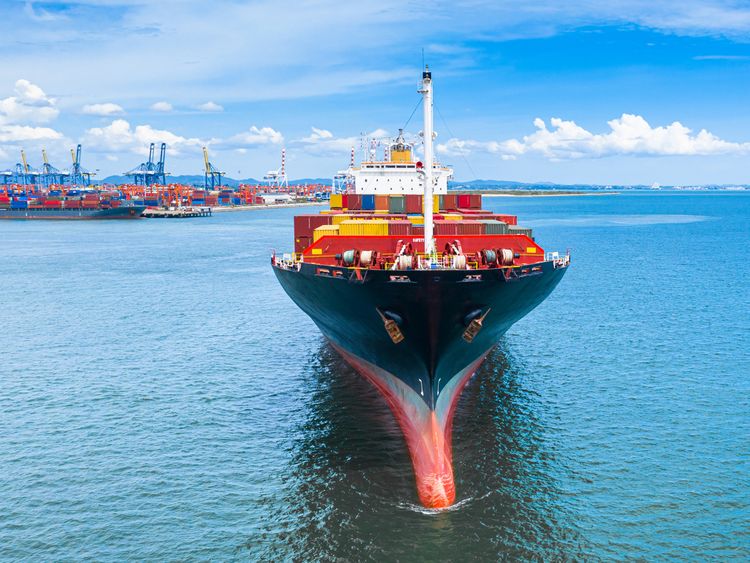UAE
Department of Municipalities and Transport forms Abu Dhabi Maritime to regulate maritime sector

(WAM) — The Department of Municipalities and Transport (DMT) has formed the Abu Dhabi Maritime in a move designed to fortify Abu Dhabi’s position as a world-leading centre for maritime activities. Through the creation of the new entity, the Abu Dhabi Ports, an ADQ company, has been assigned as the primary custodian of all of Abu Dhabi’s waterways and marine ecosystems.
The new body has been formed based on an agreement between Abu Dhabi Ports and DMT, in which both entities agreed to cooperate in launching a wide variety of integrated services and facilities. The joint effort is in line with Abu Dhabi Government’s strategy to integrate and streamline governance and oversight of priority growth sectors, and delivers on the leadership’s vision as reflected in the Abu Dhabi Plan Maritime.
Leveraging on Abu Dhabi Ports’ maritime expertise, the new entity will function as a consolidated single point of regulatory entry with a mandate to implement effective maritime services and state-of-the-art infrastructure, supported by highly-qualified human resources and upholding the highest health, safety and quality standards.
Abu Dhabi Maritime will be supported by a new Maritime Advisory Council, which will represent the interests of key partners and customers including, government entities, ports, individual users, communities, and marine service companies.
Falah Mohammad Al Ahbabi, Chairman of the Department of Municipalities and Transport, and Chairman of Abu Dhabi Ports, said: “With the establishment of Abu Dhabi Maritime, we will deliver on the emirate’s Plan Maritime, and take the regulatory oversight of our maritime sector to the next level. By working closely with our strategic partners, we will achieve our goal of placing Abu Dhabi among the world’s top-five maritime centres, in line with our leadership’s expectations.”
Captain Mohamed Juma Al Shamisi, Abu Dhabi Ports Group CEO, said: “An important component of Abu Dhabi’s rise as a major global maritime centre has been our wise leadership’s emphasis on regulatory excellence. Establishing Abu Dhabi Maritime serves to advance our emirate’s goal of becoming a world leading maritime centre through the pursuit of regulatory advancement, fulfilling the needs of the maritime sector and attracting more direct foreign investment.”
Captain Saif Rashid Al Mheiri, Managing Director, Abu Dhabi Maritime, said: “The new entity will commence its work by implementing a comprehensive regulatory framework, developing world-class maritime infrastructure, and introducing consolidated strategic planning for coastal zone management. Our synergistic approach backed by a highly interactive digital single window portal will ensure that Abu Dhabi’s maritime waterways and ecosystems continue to attract new investors and increase the maritime sector’s contribution to the growth of our national economy.”
Under its mandate, Abu Dhabi Maritime will oversee all of Abu Dhabi’s waterways and the people who use them. It will be responsible for drafting, monitoring and enforcing regulations and codes, as well as developing and maintaining all waterway infrastructure and assets.
As part of its next steps, the entity will soon launch the new expansion of Delma Port, which will accommodate more than 60 local fishing dhows, in addition to new slipways, a digitalised booking system serving the wider boating community, and mooring facilities in four Marine Protected Areas in coordination with the relevant entities. These efforts will also be supported by the launch of the Abu Dhabi Maritime’s official website, which will serve as the single window portal for the entire Abu Dhabi maritime community.
Abu Dhabi’s waterways comprise 45,000 sq km along a 2,400 km stretch of coastline, which hosts 17 commercial and community ports, over 100 maritime facilities, over 1,000 companies, and provides for over 40,000 vessel movements per year.
-

 Banking & Finance2 months ago
Banking & Finance2 months agoOman Oil Marketing Company Concludes Its Annual Health, Safety, Environment, and Quality Week, Reaffirming People and Safety as a Top Priority
-

 News2 months ago
News2 months agoJamal Ahmed Al Harthy Honoured as ‘Pioneer in Youth Empowerment through Education and Sport’ at CSR Summit & Awards 2025
-

 OER Magazines2 months ago
OER Magazines2 months agoOER, December 2025
-

 News2 months ago
News2 months agoAI Security Conference 2025 Hosted by Securado Highlights the Changing Cybersecurity Landscape
-

 Insurance1 month ago
Insurance1 month agoSupporting Community Wellness: Liva Insurance Sponsors Muscat Marathon 2026 with Free Health Checkups
-

 Interviews1 month ago
Interviews1 month agoEXCLUSIVE INTERVIEW: TLS Rebranding Marks Strategic Leap Toward Innovation, Sustainability & Growth
-

 Insurance3 weeks ago
Insurance3 weeks agoLiva Insurance Supports Community Wellness Through “Experience Oman – Muscat Marathon 2026”
-

 Banking & Finance3 weeks ago
Banking & Finance3 weeks agoA New Platform for SME Growth: Oman Arab Bank Unveils Tumouhi






























